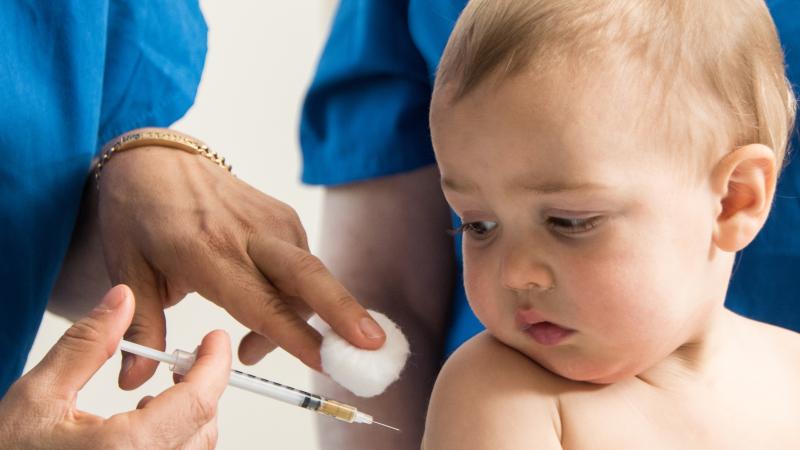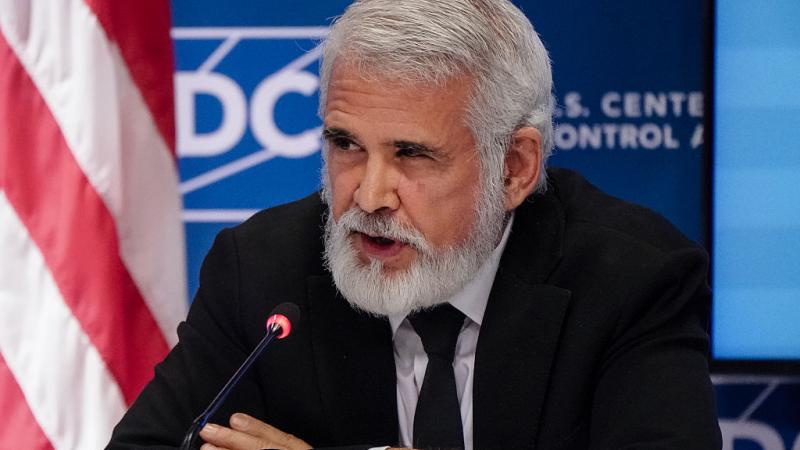Board suspends doctor, orders neuropsych eval for COVID claims echoed by mainstream scientists
"I have asked multiple times for the specific misrepresentations," says doctor Meryl Nass, who is associated with vaccine skeptic Robert F. Kennedy Jr.
Medical regulators in Maine have taken the nuclear option against a doctor for her COVID-19 views and treatment protocols, immediately suspending her license and ordering her to undergo a "neuropsychological evaluation."
While many of the "misinformation" statements attributed to Meryl Nass, originally a biowarfare researcher, are well outside the medical mainstream, others have been repeated by mainstream scientists and even the CDC.
Among the latter: the risk of heart inflammation is higher after the second dose of a two-dose vaccine, COVID recovery provides "broad and very durable long-term immunity," and it "doesn’t make scientific or medical sense" for everyone to be vaccinated.
The CDC's own guidance states that "some people should not get certain vaccines or should wait before getting them."
It's not clear whether Maine's Board of Licensure in Medicine is agreeing with the whole laundry list of misinformation allegations in complaints against Nass. Executive Director Dennis Smith and Assistant Executive Director Timothy Terranova didn't respond to requests for clarification.
"I have asked multiple times for the specific misrepresentations but they refused to make specific allegations," Nass told Just the News in an email. The board just quoted parts of her interview with COVID contrarian osteopath Joseph Mercola and put "the entire transcript into the record."
While McClatchy News questioned Nass's claim that existing COVID vaccines "don't work anymore" against Omicron, Pfizer CEO Albert Bourla said its own vaccine provides "limited if any" protection against the variant.
Her suspension letter doesn't mention the Omicron claim because the variant hadn't emerged yet, she said. Just the News asked the board if it would add that claim to the misinformation list.
While her association with vaccine skeptic Robert F. Kennedy Jr. puts a bigger target on Nass, she's one of many medical professionals to face heat from state licensing boards for COVID claims and treatment.
The National Council of State Boards of Nursing and Federation of State Medical Boards have warned members in recent months they could face professional discipline and lose their licenses for sharing purported COVID misinformation.
The American Medical Association House of Delegates approved a similar resolution against "disinformation" at its November meeting, though it doesn't explicitly mention punishment.
Tennessee lawmakers pushed back against the state's Board of Medical Examiners this fall. A COVID omnibus bill signed into law by Republican Gov. Bill Lee requires the Legislature's sign-off on any disciplinary process relating to COVID treatments.
The state board responded by deleting its misinformation policy from its website but not rescinding it, The Tennessean reported.
The Idaho medical establishment targeted pathologist Ryan Cole's license to practice last fall, shortly after the medical director of America's Frontline Doctors, which challenges COVID-19 orthodoxy, was appointed to a regional health board.
The Idaho Board of Medicine previously told Just the News it couldn't confirm investigations, but the Washington Medical Commission has confirmed it's investigating five formal complaints against Cole based on his statements against COVID vaccines and alleged prescription of ivermectin.
Both states' licensing websites show no enforcement action against him, but Cole and his lab are no longer associated with a large health network in Idaho, though neither St. Luke's Health Partners nor Cole told the Idaho Capital Sun whether he was forced out or chose to leave. He didn't respond to a query from Just the News.
Cole is speaking at this weekend's "Defeat the Mandates" march in Washington, D.C. along with many other COVID contrarians, including Kennedy.
Ivermectin politicized
Much of Maine's suspension letter to Nass focuses on her use of ivermectin to treat COVID, which "[t]he FDA has not authorized or approved" for the virus, but also on how she did it: in text messages with family members of patients, "without written authorization to do so from the patient."
She also told the board that she lied to a pharmacist who refused to grant a prescription for hydroxychloroquine to treat COVID, telling the pharmacist it was for Lyme disease. Nass said this was "the only way to get a potentially life-saving drug for my patient," who eventually recovered.
While treating COVID with ivermectin can imperil a physician's license to practice in the U.S., international research hasn't ruled it out yet.
A French biotech company that receives ongoing funding from the Gates Foundation is working on an injectable ivermectin treatment for COVID.
"The body of clinical data and scientific knowledge supporting the efficacy of ivermectin at a therapeutic dose against Covid-19 ... continues to grow," MedinCell CEO Christophe Douat said in a press release last spring following an independent safety review.
The Gates Foundation approved another grant for MedinCell to study ivermectin injectables for malaria after the company touted its COVID ivermectin research, which was not funded by Gates.
Asked about the controversy around ivermectin as COVID treatment, MedinCell spokesperson David Heuze told Just the News "we stay far from controversy or advocacy on this topic. We are in an independant [sic] and purely scientific approach."
Its COVID research "has no impact on our long-term collaboration with the Gates Foundation," he wrote in an email. Bill Gates himself recently criticized the poor performance of COVID vaccines.
The international "Together Trial" also included ivermectin among low-cost drugs researchers are testing as COVID treatments among 4,000 Brazilian participants.
That study "did not find that ivermectin was statistically significantly better than placebo for clinical outcomes," coprincipal investigator Ed Mills of McMaster University wrote in an email.
His partner Gilmar Reis of Pontificia Universidade Catolica de MG said the study was under embargo at the New England Journal of Medicine. They published another on fluvoxamine in The Lancet Global Health last fall.
The National Institutes of Health in the U.S. is close to finishing its large ivermectin trial, which used "the same dosage as we did on our study," Mills said. "Until large studies demonstrate a clinically useful treatment benefit I do not believe that regulators can endorse it as a useful COVID treatment."
But he's baffled at why ivermectin became a political issue. "It doesn't all come down to the marketing by pharmaceutical companies," Mills said. "Although they have very powerful lobbying and marketing strategies."
The Facts Inside Our Reporter's Notebook
Links
- immediately suspending her license
- neuropsychological evaluation
- biowarfare researcher,
- higher after the second dose
- COVID recovery
- CDC's own guidance
- osteopath Joseph Mercola
- McClatchy News
- Pfizer CEO Albert Bourla
- association with vaccine skeptic Robert F. Kennedy Jr
- they could face professional discipline
- approved a similar resolution against "disinformation
- COVID omnibus bill
- misinformation policy
- The Tennessean
- targeted pathologist Ryan Cole's license to practice
- investigating five formal complaints against Cole
- Idaho Capital Sun
- "Defeat the Mandates" march
- press release
- independent safety review
- another grant for MedinCell
- Bill Gates himself recently criticized
- Together Trial
















